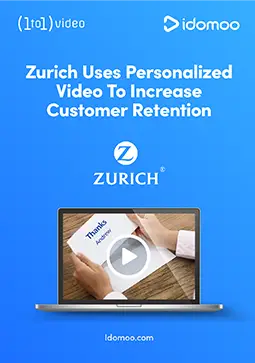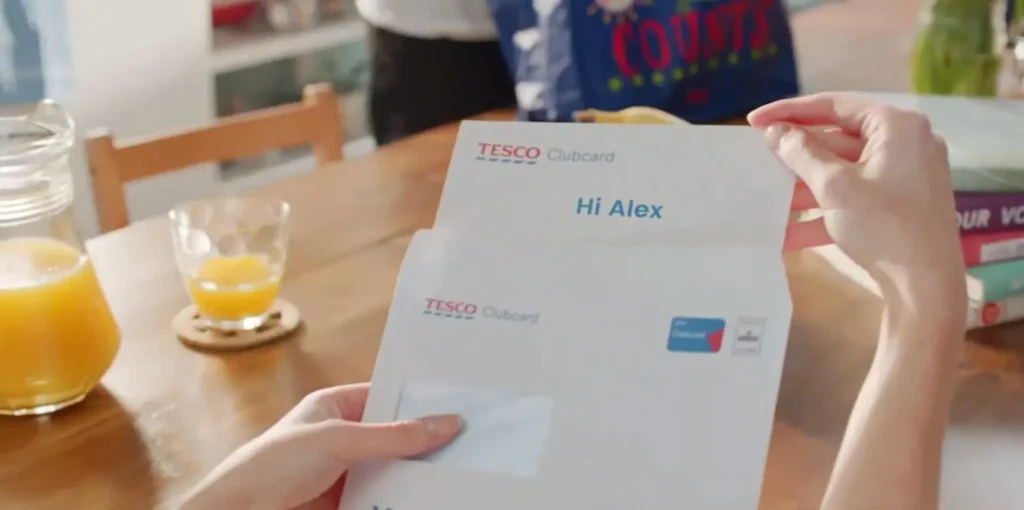Sometimes it seems like customers hit “eject” on their relationship with you, and there’s no reason for it. Sure, some churn is inevitable, but when customers are leaving, it’s important to understand why and what you can do about it.
It seems everyone has an opinion about what makes an effective retention strategy (we certainly do), and you’ll trip over people weighing in on how to improve a retention rate. But first, let’s dig into what customer retention is and why it’s so important.
Then we’ll share some key strategies for you to boost client retention long-term.
So for anyone wondering what customer retention is and what you can do about it, consider this your official primer.
Defining Customer Retention
Let’s start at the beginning. What is a good, simple customer retention definition? I like Shopify’s straightforward definition when they say it’s “the practice of increasing a business’s repeat customer rate — and improving your business’s long-term outlook in the process.”
At its core, customer retention is all about building lasting relationships with your current customers, ensuring they keep choosing your brand over competitors. It’s not just getting them to make that single repeat purchase. It’s about creating a cycle of renewals, upgrades and ongoing engagement — all fueled by continued customer satisfaction.
The ultimate goal? A strong, loyal customer base that consistently contributes to your bottom line over time.
Why Is Customer Retention Important?
Another fair question — and one that people often assume everyone knows the answer to. We can boil it down to 2 important aspects of developing a thriving business, both of which can be made or broken by retention: profits and growth.
A Cost-Effective Approach
It’s cheaper to retain a customer than it is to acquire a new one. Every dollar you invest in keeping your customers loyal delivers a far greater return than constantly chasing new clients. Research says it’s 5x-6x more expensive to find a new client than it is to reactivate an old one.
Post on
What’s more, loyal customers are also more valuable to your business over time. A whopping 63% of consumers say they’ll pay more to shop with the brands they’re loyal to, with some reports finding that loyal customers spend 67% more on an average purchase than new customers. Even for subscription-based businesses, loyalty is key — the top 30% of subscribers drive nearly 80% of their total revenue.
Simply put, you can’t have customer loyalty — and all the impressive profits that go with it — without first mastering customer retention.
Loyal Customers Do More Than Just Buy
Guess what else you can’t enjoy if your retention rate is low and your churn is high? Growth.
Some people make the mistake of focusing on customer acquisition, believing that a steady influx of new customers is the key to growth. And they might be right! But there’s no way of knowing for sure until you also consider retention. If you’re constantly losing customers as fast as you’re gaining them, your business isn’t truly expanding.
Inc.com breaks it all down pretty clearly in this simple example:
“A company that increases its number of new customers by 20 percent in a year but retains only 85 percent of its existing customers will have a net growth rate of only 5 percent (20 percent increase less 15 percent decrease). But the company could triple that rate by retaining 95 percent of its clients.”
What’s more, loyal customers don’t just come back — they often bring others with them.
Word-of-mouth marketing — when loyal customers endorse your brand to their connections — is an incredibly powerful purchase motivator. After all, it’s not what you say about your company, it’s what your customers say, and 54.5% of customers say they would recommend a brand they’re loyal to to others. Additionally, around 89% of consumers selected friends and family as the most trustworthy product recommendation source.
In short, loyal customers can become your brand advocates, sharing positive experiences, driving referrals and amplifying your brand through word-of-mouth on social media and beyond.
Long-term customers are also the ones who are more receptive to new products, premium offerings and pricing adjustments because they already trust your brand. They’ve seen the value of your business firsthand, making them more willing to explore what else you have to offer and stick with you when times are tough.
It’s no wonder that more than 67% of companies plan to increase investments in customer retention (vs. acquisition) in the face of inflation crises and potential recessions. Ultimately, by prioritizing retention, you’re not just keeping your current customers happy — you’re creating a cycle of ongoing support and growth that benefits your business in the long haul.
Key Metrics To Track for Customer Retention
So what do you need to look at when measuring customer retention? It’s more than just feeling like your customers are happy. There are actual numbers you can track that give you a clearer picture of how well you’re doing. These key metrics can tell you where things are going great and where you might need a little work.
- Customer Retention Rate: This is the percentage of customers who stick with you over a specific period of time. You can check out our guide to calculating retention rate.
- Customer Churn Rate: Essentially the inverse of your retention rate, your churn rate is the percentage of customers that leave in that period. If you see this number climbing, it’s a red flag and you may need to rethink your customer retention strategies.
- Customer Lifetime Value (CLV): Customer lifetime value estimates the total revenue you can expect from a single customer over the entire relationship. The more loyal your customers are, the higher the CLV, which directly impacts your bottom line.
- Net Promoter Score (NPS): NPS measures how likely your customers are to recommend your brand. A high score means your customers are genuinely happy and willing to spread the word.
By watching these metrics, you get a clearer picture of where your business stands with customer loyalty. Once you understand these numbers, you can tweak your approach and start improving retention. So how do you do that? By meeting and exceeding customer expectations at every turn.
Essential Strategies for Strong Customer Retention
We’ve set you up with a customer retention definition, and we explained the basics of why retention is so important. But what do you do to ensure you have a strong retention rate? And where should you focus your efforts if you’re looking to increase client retention?
1. Offer a Quality Product Or Service
It should go without saying, but it’s hard to satisfy customers when you’re selling subpar products. Minimize problems from the outset by offering a product or service that actually addresses customer needs — not make lives more difficult.
Be in the business of offering solutions, not creating problems. When customers know they can rely on your product to work effectively every time, you naturally build trust and foster long-term loyalty.
2. Nail the Onboarding Process
A smooth and welcoming onboarding process sets the stage for a lasting relationship. Take the time to guide your customers through your product or service, making sure they’re equipped to get the most out of it. Provide clear instructions, helpful resources and, if possible, a point of contact for questions.
A great example of this is Rocket Mortgage’s onboarding video, which personalizes the customer journey by welcoming new clients by name and including relevant information like their loan balance and first payment due date. It’s also interactive, letting viewers control what they want to explore.
3. Deliver Clear And Relevant Communication
Communication should be simple to engage with. To that end, keep it clear and to the point so that the most relevant information can be quickly identified, learned and retained.
Personalization can make a big difference in how your messages are received. Use your customer relationship management (CRM) system to gather data on individual preferences, purchase history and behavior, and tailor your communications accordingly. It’s all about making informed moves and delivering the right message to the right person at the right time.

Take Zurich’s renewal video. It uses customer data to notify clients when it’s time to renew their car insurance, highlighting key plan details. Video is naturally more engaging, but when it’s a personalized experience — like this one— it’s even more powerful.
According to the 2025 State of Video Technology report, compared to generic video, Personalized Video is:
- 4x more likely to make a customer feel valued by a brand
- 3x more likely to make a customer trust a brand
- 3.5x more likely to make someone become or remain a customer
- 3x more likely to make a customer recommend a brand
And with members who redeem personalized offers spending 4.5x more annually than those who don’t, it’s clear that tailored communication doesn’t just enhance the customer experience — it boosts your bottom line.
4. Offer Incentives Through Loyalty Programs
What better way to keep customers back than to reward their loyalty with incentives via a customer loyalty program? When you offer exclusive perks, discounts or early access to new products, you reinforce the value of staying with your brand.
When customers know they’ll be rewarded for their continued business, they’re more likely to stick around and spend more. In fact, on average, loyalty programs generate 4.9x more revenue than what they cost.
Customer engagement is also important. After all, if they’re not reaping the benefits of your program, how can they truly appreciate its value? One way to keep engagement up is to simply remind them. For instance, Vodafone’s year in review highlights a customer’s phone usage stats, as well as the “treats” they redeemed through their rewards program.
By reminding customers of the value they’ve already gained, Vodafone strengthens their connection to the brand. And this approach works — customers who renew are typically 50% more engaged than those who churn.
5. Provide Efficient And Solution-Driven Customer Service
Let’s face it — sometimes, things go wrong. When they do, you have to take customer service seriously. Make sure your team is equipped to handle matters quickly and can present a fix that leaves the customer happy. Seamless customer support experiences not only solve the immediate problem but also reinforce your commitment to customer success.
Empower your team with the right tools and training so they can handle issues with efficiency and empathy. And don’t forget to follow up after resolving issues to ensure that your solutions are meeting customer expectations.
Pro tip: Creating support videos for your customer portal can take the load off of your support team by letting your customers self-serve. They’re even easy to make. For instance, our AI video creator, Lucas, can be trained on your content and turn your documents into a high-quality video.
6. Actively Seek and Respond to Customer Feedback
Listening to your customers is one of the most powerful strategies for improvement. Take initiative by regularly collecting customer feedback through surveys, reviews, focus groups or one-on-one conversations.
Use that feedback to make changes, whether big or small, and show customers that their opinions truly matter. Actively listening to your customers and making adjustments based on their input shows that you’re invested in their satisfaction and success.
Pro tip: Have trouble getting customers to give you feedback? Check out how you can use video as an app for surveys, forms and more.
Revolutionizing Retention
Here at Idomoo, we believe in creating marketing communication that resonates with audiences. Whether you’re looking to build a community of loyal customers or maintain a family of tried-and-true brand enthusiasts, our Next Generation Video Platform can improve your strategy.
Patented and enterprise-grade, our platform combines data, automation and, if desired, AI to deliver game-changing customer experiences through video. Want to generate millions of personalized, cinematic-quality videos at scale and in real time? We’d love to talk to you more about how we can help you keep your customers engaged.






